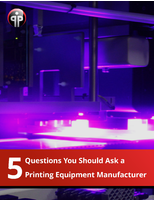Automotive MCU promotes green engine design.
Share:
Press Release Summary:
Featuring 64-channel dual enhanced timing units, 32-bit MPC5674F lets engineers optimize combustion and tune engines for improved fuel efficiency and cleaner emissions without performance loss. It is built on Power Architecture(TM) and addresses need for precise control of engine events with 264 MHz clock speed that allows core to execute 600+ DMIPS. CPU performance, signal processing capabilities, quadruple ADCs, 4 MB on-chip flash memory, and 286K total RAM meet computational demands.
Original Press Release:
Freescale Debuts World's Most Powerful Automotive Microcontroller for 'Green' Engine Design
32-bit MCU designed to deliver 10 times the performance of today's typical engine controllers, while reducing system cost by nearly 30 percent
DETROIT (Convergence 2008) - Oct. 20, 2008 - Faced with soaring fuel prices and pressures to curb greenhouse gases, automakers are racing to design vehicles that deliver better fuel economy and reduced emissions. High-performance microcontrollers (MCUs) play a key role in green automotive design, and Freescale Semiconductor has introduced the industry's most powerful and sophisticated MCU for engine control in mainstream, high-volume automobiles.
Freescale's new MPC5674F is the latest addition to the company's growing portfolio of 32-bit automotive MCUs built on Power Architecture(TM) technology.
The MPC5674F addresses the automotive industry's need for precise control of engine events, enabling developers to optimize combustion and tune engines for improved fuel efficiency and cleaner emissions, without sacrificing performance.
Manufactured on 90-nanometer technology, the MPC5674F outpaces other powertrain MCUs with its 264 MHz clock speed. This fast performance allows the core to execute more than 600 million Dhrystone instructions per second (DMIPS) - about 10 times the performance level of today's conventional engine controllers. The MPC5674F MCU's combination of exceptional CPU performance, advanced signal processing capabilities, quadruple analog-to-digital converters (ADCs) and 4MB on-chip flash memory addresses the growing computational demands of green engine designs. These designs include common rail diesel injection systems, gasoline direct injection engines, homogenous charge compression ignition (HCCI) systems and hybrid electric vehicles (HEVs).
"With increasingly stringent emission regulations and higher gasoline prices, the automotive industry is making strides toward cleaner emissions and better fuel economy," said Amy Leong, research director for Gartner. "In the next decade, we will see an accelerated adoption of fuel-efficient technologies in all cars worldwide. Additionally, we expect the revolutionary zero-emission and alternative fuel solutions to be commercialized after 2015. All of these innovations will rely heavily on electronic control systems, and therefore MCUs." (Source: Gartner Inc. press release, "Gartner says green vehicles to drive automotive microcontroller market to reach $6.3 billion 2012," August 20, 2008)
While HEV production is accelerating, hybrids still represent a small percentage of new car production and sales. Leading automakers continue to enhance the fuel efficiency of conventional gasoline and diesel engines used in mainstream vehicles by optimizing engine control systems. The MPC5674F MCU provides powertrain engineers with high-performance technology designed to reduce the cost and complexity of next-generation green engine designs, including HEV systems.
"Freescale has responded to the auto industry's urgent need for green engine control by introducing a powertrain MCU designed to outperform all others," said Kevin Klein, global manager of automotive MCUs at Freescale. "We developed the MPC5674F from concept to sampling in just 12 months, helping developers accelerate their next-generation green engine control design schedules by years. Moreover, the device's exceptional on-chip integration and virtual sensing capabilities enable developers to eliminate the need for many external components, which can help reduce system cost by nearly 30 percent over conventional systems and make advanced fuel-saving technology more affordable."
Cleaning up diesel engines
Today's automotive diesel engines use multiple pulses of fuel to eliminate clanking noises that plagued older diesel designs and to reduce carcinogenic particulate matter in the emissions. Precise fuel control in common rail diesel injection systems requires complex calculations to determine fuel injection timing, air volume and pressure, engine temperature and battery voltage.
With its powerful 264 MHz core and 600+ DMIPS performance, the MPC5674F offers the processing power to meet the computational challenges of diesel engine designs. The device's 64-channel dual enhanced timing units with 30K dedicated RAM are designed to handle complex engine timing events with ease and flexibility.
Tuning for maximum efficiency
Tuning gasoline engines for maximum fuel efficiency requires precise control of spark and fuel, using advanced calculations to govern spray timing, air volume and temperature. Running engines leaner - with less fuel and more air - can help improve mileage but also can generate more knocking (inconsistent burning in the cylinder), especially when the engine is not producing torque.
Engine designers use a variety of techniques to address knock detection, such as in-cylinder pressure sensing, vibration sensors and spark plug ionization. These technologies use massive amounts of digital filtering and calculations. Pressure sensing, in particular, depends on multiple analog-to-digital (ADC) converters and large RAM and flash arrays to handle large quantities of data and complex algorithms.
With its powerful 32-bit core, 64-channel dual timing units, quad ADCs (an industry first for powertrain MCUs), on-chip digital signal processing and 256K data RAM, the MPC5674F offers the performance and functionality to handle complex filtering and calculations for various methods of knock detection. The device's high level of integration enables engine designers to implement virtual sensors and avoid using separate knock detection ASICs, thereby reducing system cost.
Meeting emissions standards
Government standards and regulations, such as the Euro IV, V and VI emissions standards, require automakers to design cleaner burning engines that curb greenhouse gas emissions. Higher-precision tuning calls for a higher number of calibration tables and diagnostic information, which results in a need for a larger memory.
The MPC5647F helps automotive developers meet government-mandated emissions standards by providing 4MB of flash - one of the largest flash arrays available in the powertrain MCU market. This large amount of on-chip flash provides ample non-volatile memory to support computationally intensive modeling environments and auto code generation, without the cost and complexity of adding off-chip memory.
MPC5674F product features
Power Architecture core at 264 MHz with enhanced DSP capability
4MB flash memory with fetch accelerator for virtual single cycle accesses
286K total RAM
Hardware decimator leveraging the DMA as an anti-knock filter
64-channel dual enhanced timer processing units
Dual-channel FlexRay(TM) controller
64-channel quad ADC
4 x FlexCAN
2 x eSCI, 4 x DSPI
4 x DSPI
64 + 32-channel DMA controllers
416-pin PBGA package
Comprehensive development support
The MPC5674F is backed by an extensive ecosystem of hardware and software development tools optimized for automotive MCUs built on Power Architecture technology. Access to this ecosystem of Freescale and third-party tools helps reduce application development complexity and debugging/validation time during prototyping and software integration.
Pricing and availability
MPC5674F MCU samples are available now to lead automotive customers. For product pricing, please contact your local Freescale sales representative.
For more information about the MPC5674F MCU and development ecosystem, visit www.freescale.com/files/pr/automotive.html.
Freescale: The leader in automotive semiconductors
Freescale is the No. 1 supplier of automotive semiconductors, with more than 30 years of experience in the automotive industry. Freescale's sensors, analog products and 8-, 16- and 32-bit MCU families provide intelligence and connectivity for advanced safety, body electronics, chassis, engine control, powertrain, driver information and telematics. Freescale is a pioneer in FlexRay(TM) technology and was the first supplier to integrate CAN, LIN(TM) and flash memory technologies on automotive MCUs.
About Freescale Semiconductor
Freescale Semiconductor is a global leader in the design and manufacture of embedded semiconductors for the automotive, consumer, industrial, networking and wireless markets. The privately held company is based in Austin, Texas, and has design, research and development, manufacturing or sales operations in more than 30 countries. Freescale is one of the world's largest semiconductor companies with 2007 sales of $5.7 billion (USD). www.freescale.com
Reader Inquiry Response:
Freescale Semiconductor
P.O. Box 17927
Denver, CO 80217 USA
Freescale and the Freescale logo are trademarks or registered trademarks of Freescale Semiconductor, Inc. in the U.S. and other countries. All other product or service names are the property of their respective owners. The Power Architecture and Power.org word marks and the Power and Power.org logos and related marks are trademarks and service marks licensed by Power.org. © Freescale Semiconductor, Inc. 2008




